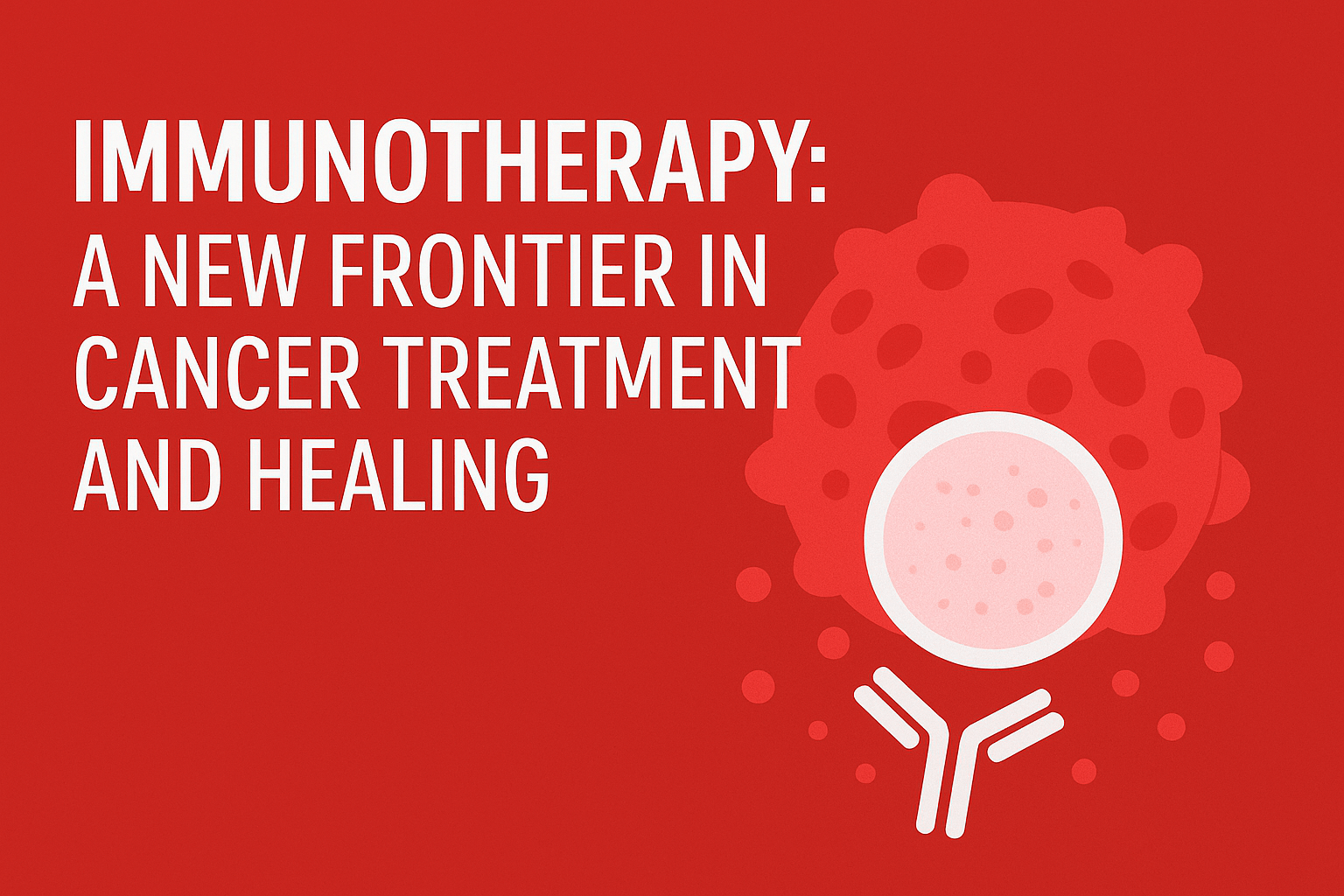Cancer remains one of the greatest challenges in modern healthcare. For decades, treatment has largely depended on surgery, chemotherapy, and radiation therapy. However, medical science is entering a new era — immunotherapy — a treatment approach that uses the body’s own immune system to fight cancer.
Unlike conventional treatments that directly attack cancer cells, immunotherapy empowers the body to recognize and destroy them naturally, bringing new hope to patients who have run out of traditional options.
In this article, let’s explore how immunotherapy works, its types, advantages, and how it’s reshaping the future of cancer care.
What Is Immunotherapy?
Immunotherapy is a treatment that boosts or modifies the body’s immune system to better detect and destroy cancer cells.
Normally, the immune system can identify and eliminate abnormal cells, but cancer cells often find ways to hide or suppress immune responses. Immunotherapy helps the immune system recognize, target, and attack these cancer cells effectively.
How Does Immunotherapy Work?
Immunotherapy enhances the immune system in several ways, such as:
-
Stimulating the immune system to recognize and destroy cancer cells.
-
Introducing synthetic immune components designed to attack specific cancer cells.
-
Strengthening the overall immune response to tumor cells.
Unlike chemotherapy or radiation, immunotherapy specifically targets cancer cells, reducing damage to healthy cells and resulting in fewer side effects.
Types of Immunotherapy
There are several types of immunotherapy, each working differently to combat cancer. These treatments can be used alone or in combination with traditional methods like chemotherapy, surgery, or radiation.
1. Monoclonal Antibodies
Lab-created molecules that mimic the immune system’s natural defense mechanisms.
They attach to specific antigens on cancer cells, marking them for destruction by the immune system.
2. Immune Checkpoint Inhibitors
These drugs “unlock” the immune system by blocking proteins that prevent immune cells from attacking cancer.
Examples include Keytruda (pembrolizumab) and Opdivo (nivolumab) — effective against cancers like melanoma and lung cancer.
3. Cancer Vaccines
Designed to trigger the immune system to recognize and fight cancer cells.
Some, like the HPV vaccine, prevent cancer, while others, like Provenge, treat existing cancers.
4. Adoptive Cell Therapy (CAR T-Cell Therapy)
This treatment involves removing immune cells (T-cells) from a patient, enhancing them in a lab to attack cancer, and then reintroducing them into the body.
CAR T-cell therapy has shown remarkable results in certain blood cancers.
5. Oncolytic Virus Therapy
This uses genetically modified viruses to infect and kill cancer cells.
The virus not only destroys the cancer cells directly but also triggers the immune system to attack the remaining ones.
Robotic Surgery with Immunotherapy
Robotic-assisted cancer surgeries are increasingly paired with immunotherapy.
These precise, minimally invasive surgeries remove tumors effectively, often improving outcomes when combined with immune-based treatments.
How Immunotherapy Is Transforming Lives
Immunotherapy has opened doors to longer survival, fewer side effects, and better quality of life for cancer patients.
It’s not just another treatment — it’s a complete shift in how we view the body’s role in healing itself.
Long-Term Relief and Survival
For many advanced cancers once thought untreatable, immunotherapy has resulted in long-term remission and even complete recovery.
Patients with metastatic melanoma, for instance, have seen remarkable survival improvements with immunotherapy.
Fewer Side Effects, Better Life
Compared to chemotherapy or radiation, immunotherapy tends to have milder side effects.
Patients often report higher energy levels, less nausea, and an overall better sense of well-being.
Emotional and Psychological Hope
Seeing real progress — like tumor shrinkage or remission — brings not just physical but emotional healing.
Immunotherapy has given many patients renewed confidence, turning cancer into a manageable condition rather than a terminal one.
The Future of Cancer Care
Immunotherapy represents a revolution in modern medicine.
As research continues, new discoveries are making it more precise, more effective, and accessible to more types of cancer.
The combination of immunotherapy with technologies like robotic surgery, genetic testing, and personalized medicine is shaping a future where cancer is no longer a death sentence but a treatable condition.
The Takeaway
Immunotherapy is more than a treatment — it’s a symbol of hope, resilience, and scientific progress.
By helping the body heal itself, it offers new possibilities for patients worldwide.
At BloodSaathi, our mission is to spread awareness about blood and immune health — because a stronger immune system means a stronger defense against diseases like cancer.
Let’s continue learning, sharing, and supporting those on their healing journey.
Because when your immune system thrives, so do you.


